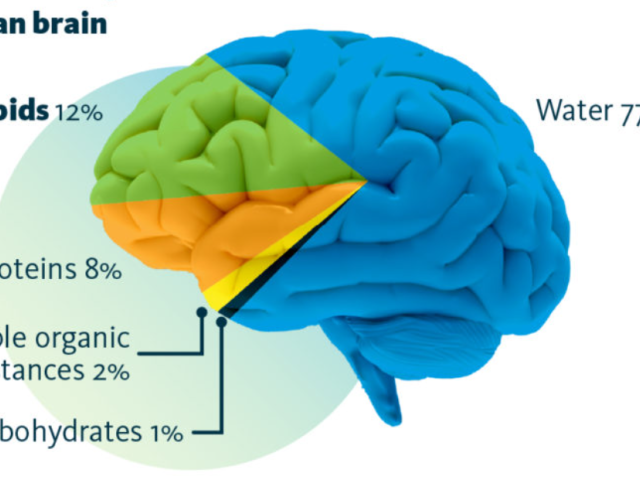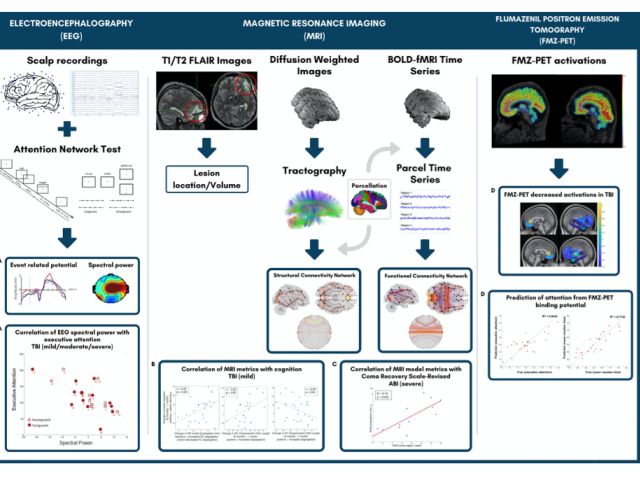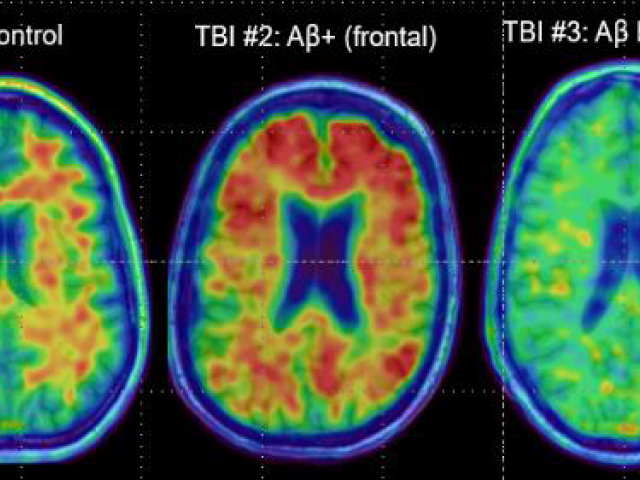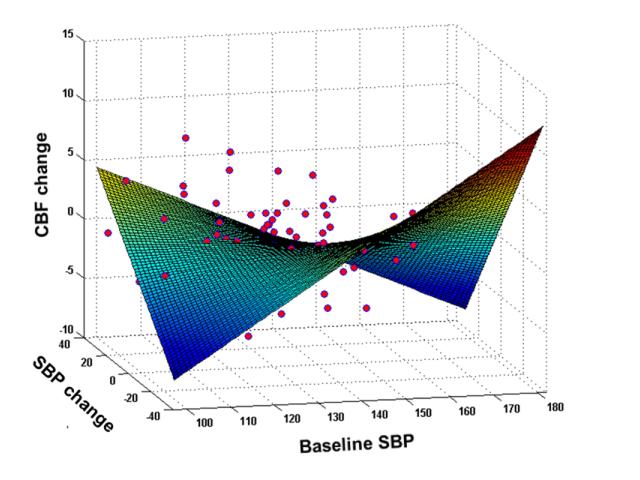Identification of dysregulated lipid pathways for biomarker and therapeutic target discovery
To test the hypothesis that manipulation of brain lipid content alters brain lipidome and cognitive function in mouse models of Alzheimer’s disease (AD), we propose to genetically alter the synthetic enzyme, Acyl CoA Synthetase 6 (Acsl6), a key mediator of polyunsaturated fatty acid enrichment in the brain— especially docosahexaenoic acid (DHA) across multiple lipid classes—in mouse models of AD...
Multi-modal imaging of the mechanisms underlying impaired executive attention after traumatic brain injury
Award or grant: NIH/NINDS: 1R01NS102646-01A1This is a multi-center collaborative grant (Weill Cornell Medicine, Mount Sinai) that aims to carry out a longitudinal study of the mechanisms underlying executive attention impairment after traumatic brain injury (TBI). The study will employ electroencephalogram (EEG) and diffusion tensor imaging (DTI) along with neuropsychological assessments in the...
Multi-modal imaging of the mechanisms underlying impaired executive attention after traumatic brain injury
Award or grant: National Institutes of Health (NIH)/National Institute of Neurological Disorders and Stroke (NINDS), 1R01NS102646-01A1Traumatic Brain Injury (TBI) is a leading cause of death and long-term disability, and there are more than 5.3 million persons in the U.S. alone with chronic executive attention and cognitive dysfunction. There is a fundamental gap in knowledge of the functional...
CSF clearance and brain amyloid dynamics after traumatic brain injury
Traumatic Brain Injury (TBI) is a leading cause of death and disability worldwide and a risk factor for later development of Alzheimer's disease (AD). TBI causes increased axonal production and rapid brain deposition of amyloid, a pathologic hallmark of AD. Persistence of amyloid in the brain after TBI may underlie TBI as a risk factor for AD. For this project, using positron emission tomography...
CSF clearance in sporadic Alzheimer's disease
Award or Grant: National Institutes of Health (NIH) R01 AG057848 (2018-2023)This project examines the longitudinal relationship between cerebrospinal fluid (CSF) clearance and the brain amyloid burden in sporadic Alzheimer's disease. More details
Blood pressure, cerebral perfusion and cognitive outcome in hypertension
Awards or Grants: (R01) National Institutes of Health (NIH)Hypertension (HTN) is associated with impaired cerebral vasoreactivity (VR) and flow autoregulation, which may result in greater dependence of cerebral blood flow (CBF) on perfusion pressure. Verifying this hypothesis has important implications for targeting blood pressure (BP) to ensure adequate perfusion in subjects with HTN. In this...
Hypertension, brain clearance and markers of neurodegeneration
Age is the strongest risk factor for brain diseases related to accumulation of misfolded proteins and also the risk for vascular diseases. So far, there is little evidence that excessive production of proteins forming brain deposits in neurodegenerative conditions contributes to their pathology. A reduced clearance of brain waste has emerged as a possible factor underlying disease development....
CSF clearance in sporadic Alzheimer's disease
A longitudinal study of elderly normal control and mild cognitive impairment subjects to examine the clearance deficit in early stages of Alzheimer's disease, association with brain amyloid burden, and features of neurodegeneration (atrophy and cognitive function).









